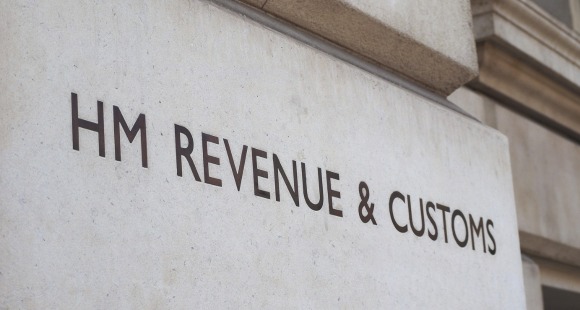


The Construction Industry Scheme (CIS) has been with us in one form or another since 1971 and has been updated and amended many times. The most recent major changes were made in 2007, creating the rules we know today, although further adjustments have been made and will continue to be made in future, no doubt.
This scheme was introduced due to 'perceived tax evasion and avoidance' by contractors and subcontractors, and it has been a source of confusion, annoyance and frustration since its earliest days. Despite the updates - or maybe even because of them - thousands of construction workers fall foul of the rules every year.
For this reason, Prescient Accounting is proud to offer specialist CIS accountants for those in the construction industry. With our help, filing your monthly CIS return will no longer be a headache!
Our CIS accountants are trained to a high standard and know all there is to know about the subject. We also ensure that their training is ongoing, to keep abreast of any new developments.
If you're battling with your CIS deductions and are scratching your head over the whole process, here's how we can help you, starting with a quick explanation of the system.

Let us know what you need from your accountants, we’re happy to help.
We believe that the role of the accountant is much more than dealing with pure compliance. That’s why we’re offering a free video or telephone call with one of our team of chartered accountants, to give you straightforward and open dialogue about your tax and accounting affairs.

Clients often approach us, anxious to know whether CIS applies to them, which is understandable, as the rules can be vague. Essentially, the CIS scheme dictates that contractors must withhold taxes and pay subcontractors a net amount. In addition, they make CIS payments each month. However, it gets much more complicated than this!
Let's start with a breakdown of the CIS system to explain who it applies to...
CIS covers a broader range of activities than you might initially think. It goes beyond just building new structures and encompasses:
CIS acts as a tax collection mechanism whenever a contractor hires a subcontractor to perform any of these construction activities in the UK. Both parties have responsibilities under the scheme.
You are required to submit CIS monthly returns by the 19th of every month following the last tax month.
Here's a breakdown for clarity:
Essentially, you have 14 days after the end of the relevant tax month to submit your CIS monthly return to HMRC.
While this system was introduced as a 'simple' method for construction industry workers to pay tax, the switch to monthly CIS returns causes a lot of frustration!
Our accountants will take care of your monthly CIS return, removing the stress and the burden from your shoulders.


Understanding the intricacies of the Construction Industry Scheme will go some way to reducing the inconvenience and fuss involved, so here's a general overview to guide you:
When a contractor hires a subcontractor, verifying their CIS registration status is crucial. This process ensures compliance with the scheme and determines the appropriate deduction rate. Here's how it typically unfolds:
Based on the verification results, the contractor applies the appropriate deduction rate to the subcontractor's gross invoice amount:
Unregistered Subcontractors (30% deduction)
Verifying CIS registration status protects both the contractor and the subcontractor.
Gross payment status is a perk within the Construction Industry Scheme (CIS) in the UK that allows some subcontractors to receive their full invoice amount without any upfront tax deductions. Here's how it works:

Standard CIS Deductions
Under CIS, contractors typically withhold a portion of the subcontractor's payment – usually 20% for registered subcontractors and 30% for unregistered ones. This is an advance on the subcontractor's income tax and NIC contributions, as mentioned above.
Gross Payment Status
What Are The Benefits?
Responsibilities
In essence, this is a trust-based system. HMRC allows certain subcontractors to manage their own tax affairs in exchange for a proven track record and meeting financial thresholds.
Your Prescient Accounting tax specialist will explore this option for you to see if you are eligible and process the necessary paperwork to initiate the scheme.

Construction workers who are self-employed and CIS registered will report their CIS deductions when they file their tax return (sometimes called a CIS tax return, but this isn't strictly correct), which is another cause of stress for the self-employed!
Here's a simplified view of how things work:
You'll need the CIS payment slips you received from each contractor you worked for throughout the tax year. These slips detail the:
Keep your CIS payment slips organised for easy reference during Self-Assessment.
Consider using accounting software specifically designed for self-employed individuals to simplify record-keeping and tax calculations.
If you're unsure about any aspect of reporting CIS deductions, ask our friendly team of specialist CIS accountants!
By accurately reporting your deductions on your Self-Assessment tax return, you ensure you meet your tax obligations and potentially claim any tax rebates you're entitled to.
The PA is a set amount of income you can earn each financial year without paying income tax. For example, for the 2023/24 tax year, the PA is £12,570.
This means you only pay income tax on earnings that exceed your PA.
Although CIS deductions are withheld upfront, they don't account for the tax-free personal allowance.
This means even if your total earnings after deductions fall below the PA, you might still need to file an SA tax return to claim back any overpaid tax.
Our expert CIS accountants will assist you in this process and help you claim a tax refund if necessary.


Failing to comply with CIS regulations in the UK can result in a range of penalties from HMRC, depending on the severity and duration of the non-compliance. Here's a breakdown of the potential consequences:
Appeals must be made within thirty days of HMRC's penalty notice, and they will withdraw the penalty if a CIS nil return is filed to show that no payments were made to contractors during the relevant tax month.
If you, as a contractor, fail to deduct the appropriate amount from a subcontractor's payment, you may be liable to pay the tax yourself, along with potential penalties (see below for details).
Contractors who don't verify a subcontractor's CIS registration status could face penalties, especially if they pay an unregistered subcontractor without deducting the 30% rate.
Contractors are obligated to provide subcontractors with CIS payment slips (also called payment and deduction statements). Failure to do so can result in penalties.
HMRC can impose significant penalties for serious or repeated breaches of CIS regulations. This could involve deliberate attempts to avoid CIS or failing to maintain proper records.
These are examples of potential penalties, and the specific amount will depend on the circumstances.
With our help, you can avoid all of these scenarios and keep HMRC off your back!
Construction workers, particularly those classified as subcontractors, can face several issues with the CIS scheme:
Overall, the CIS scheme can be a source of frustration for construction workers, which is why we offer a comprehensive service to guide contractors and subcontractors through the process smoothly.


Your personal CIS accountant will help with all of this and more. They'll help you register for CIS, file returns, handle tax overpayments, and even explore ways of reducing your tax liabilities!
Get in touch now for a free initial consultation and discover how to take the stress out of paying tax.


CIS Self Assessment refers to the process by which subcontractors in the construction industry report their income and expenses to HM Revenue & Customs (HMRC), ensuring they pay the correct amount of tax.
To register for CIS Self Assessment, subcontractors need to contact HMRC directly, either online through the HMRC website or by phone, providing personal and business details to be enrolled in the scheme.
On your CIS Self Assessment, you can claim expenses directly related to your construction work, such as materials, tools, and equipment, that are essential for performing your contractual duties.
Submitting your CIS Self Assessment online is done through the HMRC website by logging into or creating a Self Assessment account, filling in your tax return with the relevant CIS information, and submitting it digitally.
The deadlines for submitting CIS Self Assessment are October 31st for paper submissions and January 31st for online submissions following the end of the tax year on April 5th.
For late CIS Self Assessment submissions, penalties start at £100 for missing the deadline, increasing over time and potentially including a percentage of the unpaid tax depending on the delay's length.


We believe that the role of the accountant is much more than dealing with pure compliance. That’s why we’re offering a free video or telephone call with one of our team of chartered accountants, to give you straightforward and open dialogue about your tax and accounting affairs.